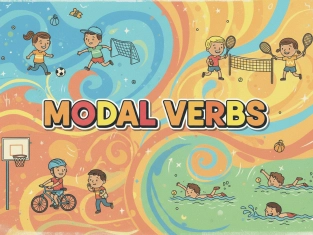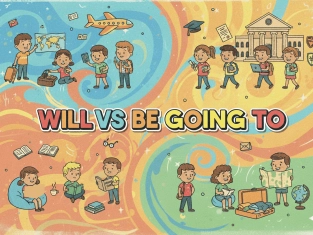Modal Verbs Will and Would
Table of Contents
Exercises
Explanation
Will
We use will to talk about:
-
the future
-
decisions made at the moment of speaking
-
promises or offers
Examples:
-
I will call you tomorrow.
-
She will help you with your homework.
-
Don’t worry — it will be okay.
-
I think it will rain tonight.
Negative form: will not → won’t
I won’t forget your birthday.
Would
We use would to talk about:
-
polite requests or offers
-
imaginary situations (unreal or future-in-the-past)
-
past habits or refusals
Examples:
-
I would like a cup of tea, please. ☕
-
Would you open the window, please?
-
If I had more money, I would travel the world.
-
When we were kids, we would play football every day.
Negative form: would not → wouldn’t
He wouldn’t listen to me.
My old car wouldn’t start this morning.
Will vs. Would
|
Meaning |
Will |
Would |
|
Time |
Future |
Polite / Past / Imaginary |
|
Example |
I will go tomorrow. |
I would go if I had time. |
|
Request |
Will you help me? |
Would you help me, please? |
|
Offer |
I’ll carry your bag. |
Would you like some coffee? |
Quick Tips
-
Will = real future
-
Would = polite, past, or unreal
-
Would like = polite way to say want
I’d like a sandwich. (instead of I want a sandwich) -
In conditional sentences, would is often used after if:
If I were you, I would study harder.

